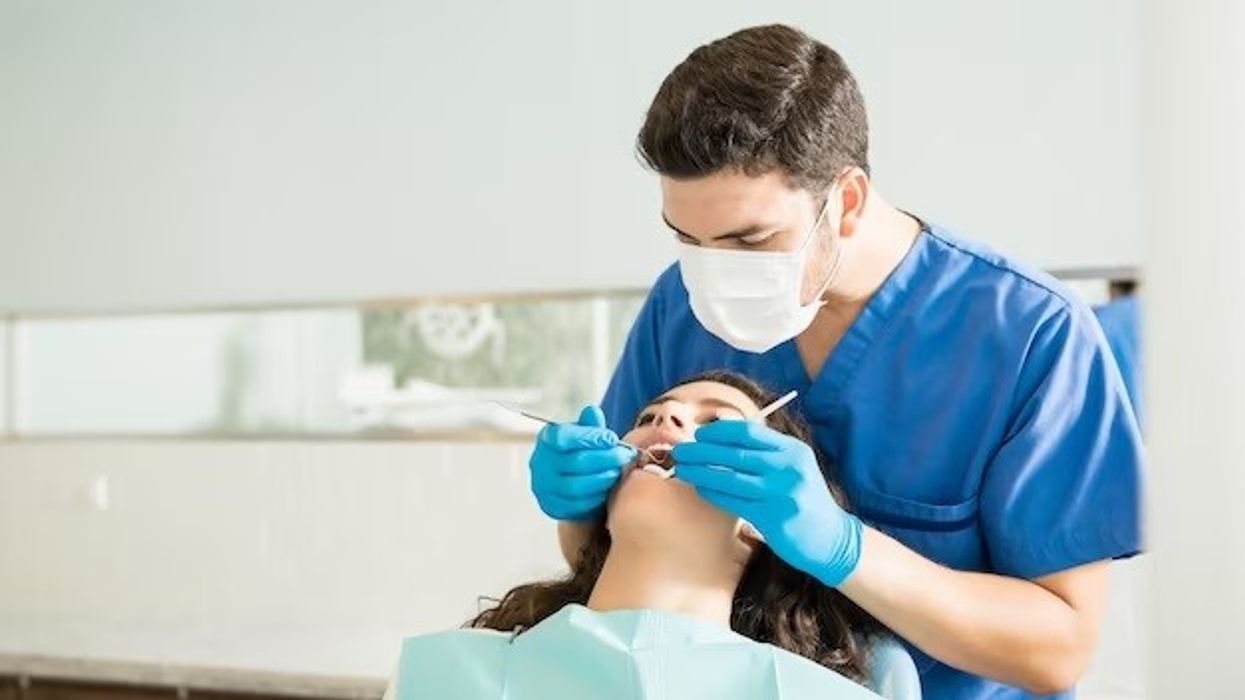Only 10 per cent of consumers said they would go to their pharmacist when seeking preventative care advice for their oral health
Despite a high incidence of tooth decay in the UK, preventative oral care advice is not being offered consistently to patients across the country, a new survey by Haleon and the College of General Dentistry has revealed.
The study found that 70,000 people were treated in UK emergency departments for tooth decay last year alone, and this is indicated to be the effect of the unprecedented pressure faced by many oral health professionals in the country.
Preventative care helps in maintaining a healthy mouth and protecting against tooth decay, gum disease and more serious issues such as tooth loss and negative impacts on general health.
However, only one third (34 per cent) of oral health professionals surveyed said they always offer preventative care advice to patients.
One in four (25 per cent) consumer respondents (total 2,000 consumers were surveyed) also said they weren’t given preventative advice during their last dental appointment.
The study included more than 500 dental health professionals, and almost 60 per cent of them said that they are more likely to offer preventative advice for private patients than NHS patients.
Over a third (37 per cent) of NHS oral health professionals and 15 per cent of private professionals cited time constraints as the top reason for not being able to routinely offer preventative care advice.
Bas Vorsteveld, General Manager GBI, Haleon, said: “We know that oral health professionals are facing huge pressures, and we want to help support them to be able to provide better preventative advice – not just during routine dental appointments, but outside of appointments too.
“Our findings revealed preventative care advice is not always offered consistently, despite patients and dentists understanding its importance. We remain committed to addressing these issues and will look to develop new initiatives to support dental professionals.
Preventative advice differs
Additionally, the study found that oral health professionals differed on the preventative advice they would recommend to patients.
Half of them said additional oral hygiene products and brushing techniques were key to prevent dental problems, while 41 per cent pointed to advice on diet as preventative care, and just over a third would consider advice on caring for gums.
Although most patients and oral health professionals understand the importance of preventative care, there’s confusion over whether preventative care is routinely available on the NHS.
Over a third consumers were unsure about it, but 74 of the dentists knew that preventative oral healthcare advice is offered on the NHS.
Younger dentists aged 23-34 were more likely to be aware of the Delivering Better Oral Health toolkit, which was updated in 2021, compared to oral health professionals aged 45 – 54.
Other key findings of the study
- Where it is offered, 9 in 10 patients found the advice given by their dentist helpful.
- NHS patients, younger people and men were less likely to proactive ask for preventative care advice.
- Consumers in Northern Ireland and South West England were more aware of the importance of preventative care than those form Greater London.
- Respondents from Greater London also were less likely to have received advice compared to respondents in the South East and North East.
Dr Abhi Pal, President at the College of General Dentistry commented: “We are committed to quality and standards of excellence in general practice dentistry – helping professionals to do the best for their patients. The research revealed some fascinating insights into the role that preventative care plays in the UK. It’s quite properly a mainstay of both private and NHS appointments, and we support any initiative that promotes prevention.”
Very few people go to pharmacy for preventative oral care advice
Pharmacists may see many people come to them with oral health problems, as the first point of contact where dentistry access isn’t possible, they are not preferred when it comes to seeking preventive advice.
Only 10 per cent of consumers polled said they would go to their pharmacist when seeking preventative care advice for their oral health.
Interestingly, however, over three quarters (78 per cent) of those who have received preventative oral care advice at a pharmacy said that they found this advice helpful.













